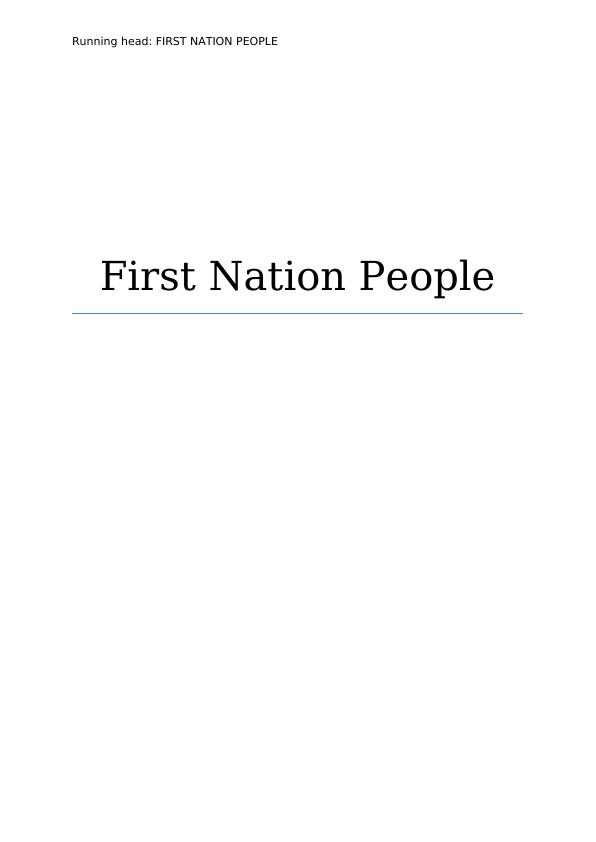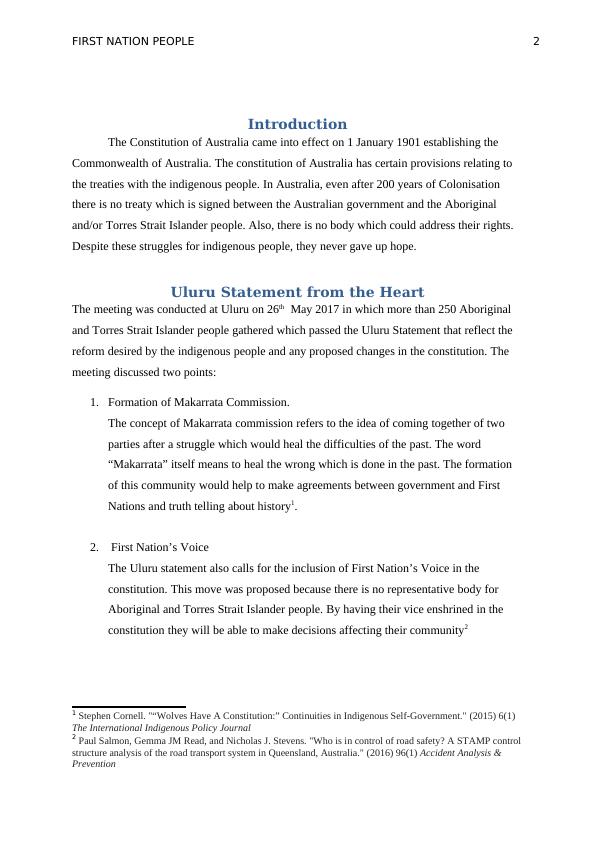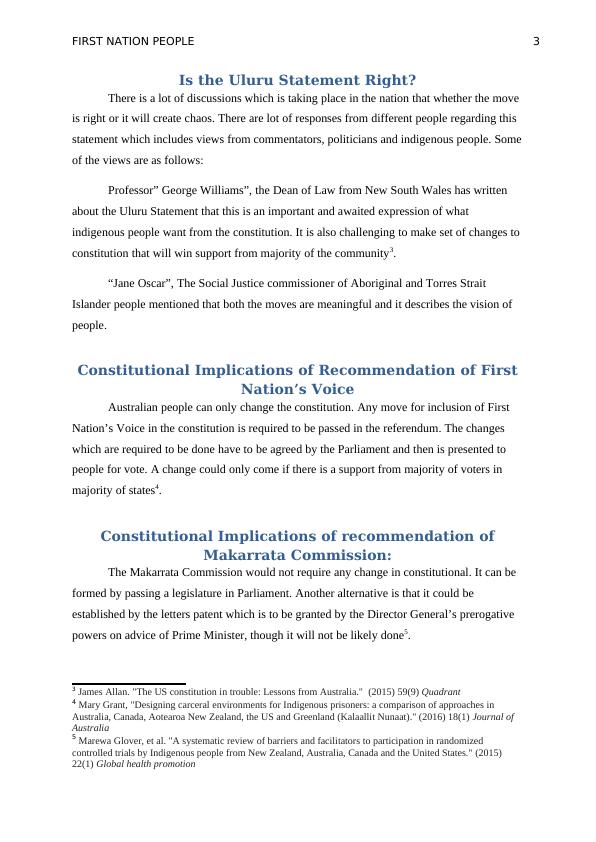First Nation People: Uluru Statement, Constitutional Implications, and Indigenous Sovereignty
8 Pages2175 Words315 Views
Added on 2022-12-16
About This Document
This document discusses the Uluru Statement from the Heart, its constitutional implications, and the concept of Indigenous sovereignty in Australia. It explores the demand for a First Nation's Voice and the formation of a Makarrata Commission. The document also examines the importance of Section 128 of the Australian Constitution and the requirements for a successful referendum. It concludes by discussing the potential impact of constitutional changes on the Aboriginal and Torres Strait Islander community and the nation as a whole.
First Nation People: Uluru Statement, Constitutional Implications, and Indigenous Sovereignty
Added on 2022-12-16
ShareRelated Documents
End of preview
Want to access all the pages? Upload your documents or become a member.
Achieving Aboriginal and Torres Strait Islander health equality PDF
|10
|2656
|73
ABOR6004 The Aboriginal and Torres Island Community
|8
|2079
|49
LLB203 - Australian Constitutional Law - Assignment
|10
|2905
|97
Uluru Statement and the Response
|11
|2891
|462
Repealing Section 51(xxvi) of Australian Constitution: A Step towards Eliminating Racial Discrimination against Indigenous People
|9
|2466
|242
Statement of the Heart Document
|7
|1942
|378



